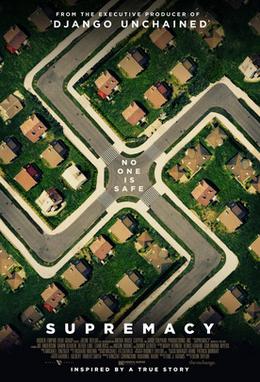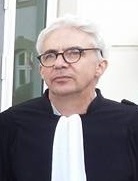
Michael Haneke is an Austrian film director and screenwriter. His work often examines social issues and depicts the feelings of estrangement experienced by individuals in modern society. Haneke has made films in French, German, and English and has worked in television and theatre. He also teaches film direction at the Film Academy Vienna.

Kimberly Elise Trammel is an American actress. She made her feature-film debut in Set It Off (1996), and later received critical acclaim for her performance in Beloved (1998).

L'Enfant is a 2005 Belgian film directed by Jean-Pierre and Luc Dardenne, starring Jérémie Renier and Déborah François. The film was released under its French title in the US, and as The Child in the UK.

Ocean's Thirteen is a 2007 American heist comedy film directed by Steven Soderbergh and written by Brian Koppelman and David Levien. It is the final installment in the Ocean's film trilogy and the sequel to Ocean's Twelve (2004). The film features an ensemble cast including George Clooney, Brad Pitt, Matt Damon, Andy García, Don Cheadle, Bernie Mac, Ellen Barkin, Al Pacino, Casey Affleck, Scott Caan, Eddie Jemison, Qin Shaobo, Carl Reiner, and Elliott Gould.

Waiting for Happiness is a 2002 Mauritanian drama film written and directed by Abderrahmane Sissako. Main characters are a student, who has returned to his home in Nouadhibou, an electrician and his child apprentice, and the local women. The film is characterized by a succession of scenes of the daily life of the characters which are unique to their particular African and Arab cultures, while borrowing from tropes of Tayeb Saleh's Season of Migration to the North. The viewer must interpret the scenes without much help from narrator or plot, while the structure of the film hangs on a series of mundane but visually arresting moments, many of which are repeated in other works in Abderrahmane Sissako's opus, including scenes at a barber shop and a photo booth, also present in his earlier La Vie Sur Terre and later Timbuktu. The film presents typical Mauritanian moments of beauty, struggle, alienation, and humor, which are experienced by groups socially divided from each other, such as Bidhan women drinking tea and gossiping, West African migrants passing through Mauritania to get to Europe. The young protagonist who has returned interacts with all of these groups as an outsider, as he struggles to remember even his own Hassaniya Arabic dialect, but prefers instead French. Many of the themes and characters presage Sissako's 2014 film Timbuktu, and both explore liminal Sahel identities authentically situated in everyday life. Waiting for Happiness premiered at the 2002 Cannes Film Festival in the Un Certain Regard section. Sissako dedicated the film to his mother, who died on its last day of filming.

Abderrahmane Sissako is a Mauritanian-born Malian film director and producer. His film Waiting for Happiness (Heremakono) was screened at the 2002 Cannes Film Festival official selection under Un Certain Regard, winning a FIPRESCI Prize. His 2006 film Bamako received much attention. Sissako's themes include globalisation, exile and the displacement of people. His 2014 film Timbuktu was selected to compete for the Palme d'Or in the main competition section at the 2014 Cannes Film Festival and nominated for an Academy Award for Best Foreign Language Film.

Aïssa Maïga is a Senegal-born French actress, director, writer, producer, and activist. Maïga has worked with major auteurs like Michael Haneke, Abderrahmane Sissako and Michel Gondry, and recently starred in Chiwetel Ejiofor’s directorial debut.

Sergei Vladimirovich Loznitsa or Serhii Volodymyrovych Loznytsia, is a Ukrainian director of Belarusian origin known for his documentary as well as dramatic films.
Zeka Laplaine, sometimes credited as José Laplaine, is a director and actor from Ilebo in the Democratic Republic of the Congo. The child of a Portuguese father and Congolese mother, he moved to Europe when he was 18. His 1996 short film Le Clandestin was featured at the 2010 Amakula International Film Festival in Uganda. He portrayed a cowboy alongside Danny Glover in Death in Timbuktu, a film within a film in the Council of Europe Film Award-winning film, Bamako. Laplaine is a member of France's "Guilde Africaine des Realisateurs et Producteurs".

Timbuktu is a 2014 Mauritanian-French drama film directed and co-written by Abderrahmane Sissako. The film centres on the brief occupation of Timbuktu, Mali by Ansar Dine, and is partially influenced by the 2012 public stoning of an unmarried couple in Aguelhok.

Gett: The Trial of Viviane Amsalem is a 2014 internationally co-produced drama film directed by Ronit Elkabetz and Shlomi Elkabetz. It was screened as part of the Directors' Fortnight section of the 2014 Cannes Film Festival. It was also screened in the Contemporary World Cinema section at the 2014 Toronto International Film Festival.

Claire Burger is a French film director, film editor and screenwriter. She received the Camera d'Or award for her debut feature film Party Girl at the 2014 Cannes Film Festival.

Nadia Ben Rachid is a Franco-Tunisian film editor. She has over thirty years of experience, and has spent two decades working with filmmaker Abderrahmane Sissako. She won the award for Best Editing at the 2015 Césars for Sissako's 2014 film Timbuktu.

Supremacy is a 2014 American drama thriller film directed by Deon Taylor, written by Eric J. Adams, and starring Joe Anderson, Dawn Olivieri and Danny Glover. The film chronicles the real life events of March 29–30, 1995, perpetrated by Aryan Brotherhood members Robert Walter Scully Jr. and Brenda Kay Moore. After fatally shooting a police officer, neo-Nazi Garrett Tully, along with his companion, Doreen Lesser, breaks into a house and takes an African-American family hostage.

William Bourdon is a French lawyer of the Paris Bar Association who practices criminal law, particularly specializing in white-collar crime, communications law and human rights. He particularly specializes in defending the victims of globalization and crimes against humanity. He has been with Bourdon Simoni Voituriez since 1979. He is widely considered one of the most powerful international lawyers
Maji-da Abdi is an Ethiopian film director and producer.

Aïssata Tall Sall is a Senegalese lawyer and politician who has been the country's Foreign Minister since November 2020.
Tiécoura Traoré is a Malian actor.
Maïmouna Hélène Diarra, also Helena Diarra was a Malian actress known for playing the roles of older women from her young age. She is the CEO of the International Fund for the Development of Active Retirement (FIDRA). She is the Vice President of the Professional Association of Decentralized Financial Systems of Côte d'Ivoire (Apsfd-CI).

Black Tea is a 2024 romantic drama film co-written and directed by Abderrahmane Sissako. The film starring Nina Mélo and Chang Han is about an Ivorian woman in her 30s who immigrates to China and falls in love with a 45 year old Chinese man.
















